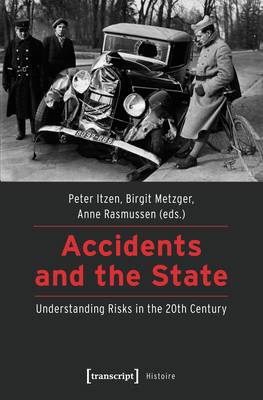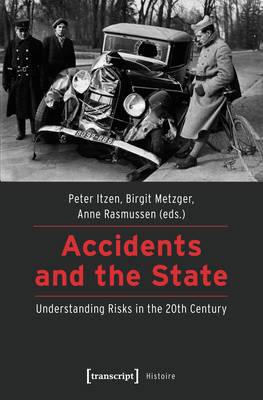
Bedankt voor het vertrouwen het afgelopen jaar! Om jou te bedanken bieden we GRATIS verzending (in België) aan op alles gedurende de hele maand januari.
- Afhalen na 1 uur in een winkel met voorraad
- In januari gratis thuislevering in België
- Ruim aanbod met 7 miljoen producten
Bedankt voor het vertrouwen het afgelopen jaar! Om jou te bedanken bieden we GRATIS verzending (in België) aan op alles gedurende de hele maand januari.
- Afhalen na 1 uur in een winkel met voorraad
- In januari gratis thuislevering in België
- Ruim aanbod met 7 miljoen producten
Zoeken
Accidents and the State
Understanding Risks in the 20th Century
Anne Rasmussen, Birgit Metzger, Peter Itzen
Paperback | Engels
€ 72,45
+ 144 punten
Omschrijving
The beginning of the twentieth century saw a reinterpretation of the concept of the accident. While accidents had traditionally been considered inevitable, modern societies debated their management and prevention. The emergence of the modern state led to an unprecedented capability to deal with accidents. The state formed institutions, practices, and legal concepts that considerably changed everyday life. The contributions in this volume explore social, cultural, political, administrative, and medical responses to accidents in modern states. The case studies include British, French, German, Italian, Chinese, and Chilean experiences and thus provide different national perspectives on the governance of risks.
Specificaties
Betrokkenen
- Auteur(s):
- Uitgeverij:
Inhoud
- Aantal bladzijden:
- 240
- Taal:
- Engels
Eigenschappen
- Productcode (EAN):
- 9783837641134
- Verschijningsdatum:
- 2/12/2025
- Uitvoering:
- Paperback
- Formaat:
- Trade paperback (VS)
- Afmetingen:
- 147 mm x 226 mm
- Gewicht:
- 378 g

Alleen bij Standaard Boekhandel
+ 144 punten op je klantenkaart van Standaard Boekhandel
Beoordelingen
We publiceren alleen reviews die voldoen aan de voorwaarden voor reviews. Bekijk onze voorwaarden voor reviews.









